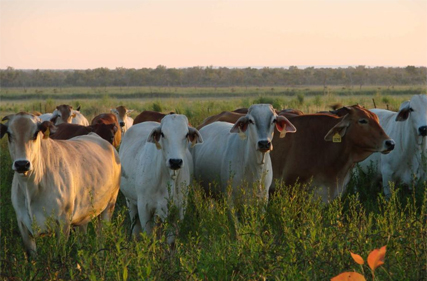 Cattle Australia has delivered the draft principles of the Land Management Commitment, to underpin a policy position on deforestation for international acceptance.
Cattle Australia has delivered the draft principles of the Land Management Commitment, to underpin a policy position on deforestation for international acceptance.
Set to deliver the draft policy for further engagement with the supply chain on May 26, CA Chief Executive Officer, Dr Chris Parker, said the work seeks to ensure equitable outcomes for all producers.
“This is happening at a time when the supply chain and financial sector are being caught under a broader trend requiring global businesses to publicly disclose the actions they are taking to promote sustainable outcomes for the planet,” Dr Parker said.
“Given the varied ESG compliance requirements we are facing, including biodiversity and natural capital reporting, there is strong urgency to provide a clear pathway to deliver beef products with deforestation-free credentials into our global markets.
“In addition to this, our Australian domestic markets have also made voluntary commitments to international frameworks that require deforestation-free evidence.”
With the European Union Deforestation Regulation (EUDR) set to be implemented from January 1, 2025, Dr Parker cautioned Government and the supply chain against urgently transacting on compliance requirements, which would likely have unintended consequences, and urged a strategic focus during negotiations.
“As it stands, there is no clear definition on deforestation aligned to our Australian land management practices that supports our biodiversity,” Dr Parker said.
“There is also no developed national source of truth that enables a system to facilitate lifetime traceability of our livestock informed by national mapping.
“The Land Management Commitment will provide a voice to our producers and support our supply chain partners in demonstrating the environmental stewardship associated with Australian agricultural practices.
“Done well, this will also bolster our existing industry systems, highlight the sustainability credentials of our commodities, and provide competitive advantage over jurisdictions with poor practices.”
Dr Parker said CA is seeking to lead the way by working with producers, service providers, government officials and supply chain partners to create the commitment.
“CA, along with our funding partners, is seeking equitable outcomes for all producers through this important project,” Dr Parker said.
“The draft principles announced today provide clarity on the fundamentals that are most important for our Australian context about our land management.
“With the support of our consultant, Baringa Partners, CA is now seeking feedback on the seven draft principles.
“Pending the feedback received, the draft principles will be embedded into the draft policy, which will be open for consultation from May 26.”
The draft policy principles set out below outline the nuances of a required definition:
- This will be a voluntary standard, developed by industry for industry, with the intention of empowering producers to make informed decisions.
- Reflects the Australian ecosystem, in that the final Land Management Commitment will reflect the unique landscapes and land management practices that exist in Australia.
- Promoting producer economic outcomes will be the primary guiding principle informing decision-making as the Land Management Commitment is developed.
- The Land Management Commitment will lean on existing State, Territory and Federal definitions, legislation, and measurement/ monitoring systems where possible, and be simple to implement.
- In developing this body of work, we are collaborating with the supply chain and financial sector to enable all parties to leverage an industry-agreed definition and common method of verification, consistently applied by all parties. This will avoid a scenario of multiple definitions creating confusion and burden for producers.
- A single traceability system – to support producers in demonstrating alignment to the commitment, we will utilise existing industry systems. This will also provide a single engagement point for producers to ensure accurate representation of their land and management activities.
- A make-good mechanism to provide direction regarding compliance and any remediation of historic land management practices, where required, to ensure producers are not excluded on the basis of past management activities.
-Cattle Australia
